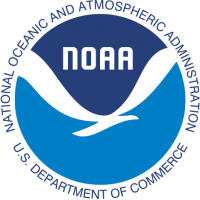The National Oceanic and Atmospheric Administration’s pilot online program, Three Steps to Better Risk Communication, is an opportunity for organizations to develop the tools needed to proactively reach their community about risk.
 During the four-week, web-based course being offered in September, participants can meet with trainers, peers and an expert guest speaker to address their own communication challenges, learn about real world examples and build a risk communication strategy.
During the four-week, web-based course being offered in September, participants can meet with trainers, peers and an expert guest speaker to address their own communication challenges, learn about real world examples and build a risk communication strategy.
Supporter Spotlight
Offered through NOAA’s Office of coastal management, participants will learn during this free web-based pilot course to identify how and why people respond to risk the way they do, improve audience understanding by analyzing their characteristics and values and engage audiences in a group setting to encourage buy-in and identify options to reduce risk.
Trainers Stephanie Fauver, Tashya Allen and Gwen Shaughnessy work with communities to help its members better understand the affects of hazards and climate change as well as identify vulnerabilities and implement solutions to be more resilient but saw the challenge of keeping residents engaged and motivated to take action to protect their community. The trainers developed the course after seeing how valuable it is for communities to have help in applying risk communication principles and developing a more effective risk communication strategy, according to the website.
Pairs or small groups from an organization or community are encouraged to participate in the program that begins Sept. 16. The first virtual scheduled for Wednesday, Sept. 18. Participants are expected to join each week from 3-4:30 p.m. Wednesdays in the 90-minute interactive sessions.
No communication experience is required and there is no charge, but space is limited. Register online.
Participant will be expected to follow through with the entirely of the course, work on an actual risk communication challenge, spend up to 90 minutes completing assignments and engaging with course participants electronically outside of the weekly sessions and provide feedback on the course to help shape future offerings.
Supporter Spotlight
Participants will need a headset or speakers and a microphone, a Google-based account for Google Docs access and Adobe Connect and the learning management system Moodle, both furnished by NOAA.
Participants who complete all aspects of the pilot course are being offered complimentary registration to the Social Coast Forum Feb. 3-6, 2020, in Charleston, South Carolina, which includes a learning and collaboration session specifically designed for course participants.
Email Stephanie Fauver at Stephanie.Fauver@noaa.gov for more information on the program.







